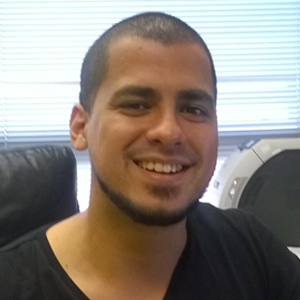The truth goes only so far
Science impacts all of us, and knowledge of it should not be exclusive to scientists. I think this is the perfect time to build more and stronger bridges between scientists and their communities. We scientists must reach out and help our neighbors understand the facts, the scientific process, and the risks and rewards of technologies. We must talk to our family members and friends about the everyday discoveries that lead to improvements to our quality of life and that should not be taken for granted.
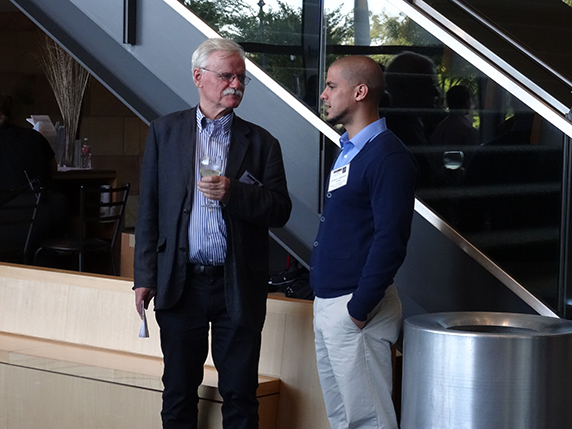 The author, Leonardo Valdivieso–Torres, talks to David Tribe (left), a professor at the Melbourne University, during the 2015 Biotechnology Literacy Project Boot Camp at the University of California, Davis, in June. At the three-day event, undergraduate students, graduate students and postdoctoral fellows learned more about and practiced engaging the public in discussions about biotechnology, nutrition and agriculture.
Photo courtesy of Shannon Albers
The author, Leonardo Valdivieso–Torres, talks to David Tribe (left), a professor at the Melbourne University, during the 2015 Biotechnology Literacy Project Boot Camp at the University of California, Davis, in June. At the three-day event, undergraduate students, graduate students and postdoctoral fellows learned more about and practiced engaging the public in discussions about biotechnology, nutrition and agriculture.
Photo courtesy of Shannon Albers
Why do I say this?
The volume of scientific knowledge is growing to the point that sometimes even scientists within the same discipline need to fill big gaps of knowledge to understand each other. How many of us have gone to a presentation that we cannot get much out of (sometimes nothing) – not because it is hard to understand but because we are not familiar with the techniques or vocabulary?
The same thing happens with the public and our politicians. Despite an overwhelming amount of research by the scientific community confirming the safety of drugs, vaccines, antibiotics and genetically modified organisms, many people have doubts about these advancements.
I asked Bruce M. Chassy, a professor emeritus at the University of Illinois who runs a website academicsreview.org intended to demystify controversial science, why he thought sound science isn’t necessarily the prime driver of public attitudes. “There’s plenty of good information out there for someone who cares to dig for it and can understand it,” he said.
Scientists often think that the truth will gain the public’s trust, but this is not always the case. Unfortunately, a lot of misinformation is published on the Internet and broadcast on TV, two of the public’s major sources of information. And with scientists making up less than 1 percent of the world’s population, it is very unlikely that a member of the public will meet a scientist in his or her life.
I worry we scientists are not doing enough to clarify misconceptions and support science outreach to the general population. I offer that we are more effective when we invite the public into our institutions, engage in formal outreach, and dig into our wallets.
Hold informational seminars
- Organize short seminars for faculty members and students from other university departments and invite the public to attend. Universities often have conferences on different topics, but the great majority, if not all, are designed to be understood by scientists and not the general public.
- At Rutgers University, we have Rutgers Day, at which time the university is open to the public and many activities are performed for kids and adults. Science clubs and departments often have booths for performing DNA extractions and other science activities. Local families and members of the Rutgers community enjoy these activities while learning key science concepts and about the university. It would be great if we could add seminars on science misconceptions on the evening of this event. This is one example of an existing activity that we can take advantage of.
Join an outreach program
- Formal science-outreach programs also can clear up misconceptions among the public. There are many scientific societies through which you can get involved in outreach. Sometimes you can even get paid for it.
- At Rutgers, we have the Rutgers Science Explorer Bus, which is an ambulatory science laboratory that travels to K – 12 schools. Student participants perform basic experiments and learn science concepts while being supervised by scientists.
- I volunteer with the Rutgers University and Robert Wood Johnson Bio Links program. It pairs a postdoc or graduate student with a teacher in a public school to assist with teaching science once a week. I have had the opportunity and flexibility to come up with my own ideas and implement them in the classroom. I have touched upon science misconceptions and taught with hands-on experiments how science positively affects our everyday lives. I know it might sound like a lot of work, and it’s definitely not easy, but the smiles of those kids when they learn and enjoy the activity easily can make it seem like a hobby instead of a burden.
- The University of Hawai at Manoa offers another good example of formal science outreach. The GENE-ius Day Program exposes students in first grade through eighth grade to hands-on biotechnology experiments, organizes field trips, and holds talks on the relationship between science and the food we eat. GENE-ius leader Ania Wieczorek also started Bio-Tech in Focus, a website that publishes, twice a month, a bulletin addressing biotechnology concerns. We need outreach activities like these that focus on vaccines and global warming, for example, with support from experts in those fields.
- The benefits of doing formal science outreach far outweigh the burdens. Scientists and science students who get involved gain teaching experience that can enhance their repertoire of skills. I personally have had to become more creative to engage kids and make sure I do not lose their focus. And to my satisfaction, 10 kids have gotten to meet a scientist, something that otherwise probably would not have happened.
Donate to nonprofits to support science outreach
- Donations to scientific nonprofits are often tax deductible, and this is perhaps the easiest way for us to contribute.
- As Donna Kridelbaugh noted in her article “ The giving list: supporting science with annual donations” for ASBMB Today, we all can make a giving list to support science with annual donations and promote a philanthropic culture. There are plenty of nonprofits that promote science literacy for adults, put scientists in K - 12 classrooms and perform hands-on activities in public places. These organizations often need money.
Finally, I know it is easy to get lost in the details of the everyday work of a scientist – troubleshooting, writing, reading and even taking a little time to think and dream. However, we always should keep in mind the big picture and the great advances we all have achieved as a community. Let’s share these goodies through science outreach.
Enjoy reading ASBMB Today?
Become a member to receive the print edition monthly and the digital edition weekly.
Learn moreGet the latest from ASBMB Today
Enter your email address, and we’ll send you a weekly email with recent articles, interviews and more.
Latest in Opinions
Opinions highlights or most popular articles
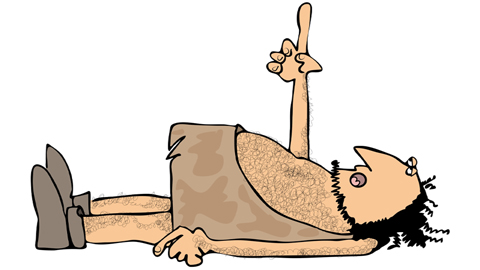
A paleolithic peer review
You might think review panels have only been around for the last century or so. You would be mistaken.
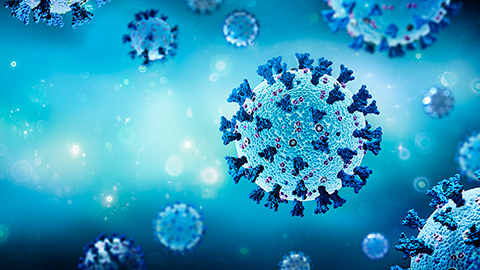
Early COVID-19 research is riddled with poor methods and low-quality results
The pandemic worsened, but didn’t create, this problem for science.

So, you went to a conference. Now what?
Once you return to normal lab life, how can you make use of everything you learned?
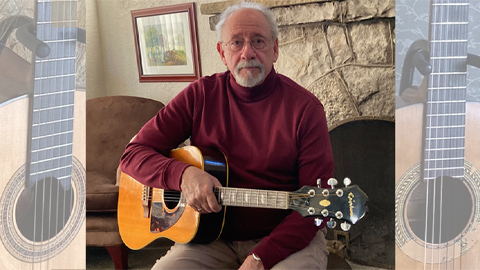
My guitar companion
A scientist takes a musical journey through time and around the world.
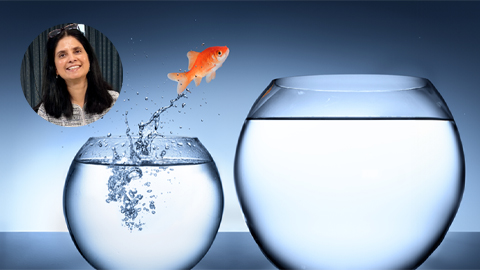
Catalyzing change and redefining purpose
To mark Women’s History Month, Sudha Sharma writes about her journey from focusing on her own research program to being part of a collaborative COVID-19 project.
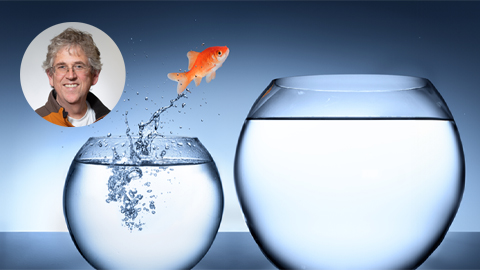
The power of sabbaticals
To mark Women’s History Month, Nicholas Rhind writes about learning techniques in other researchers’ labs that empower the work in his own.

